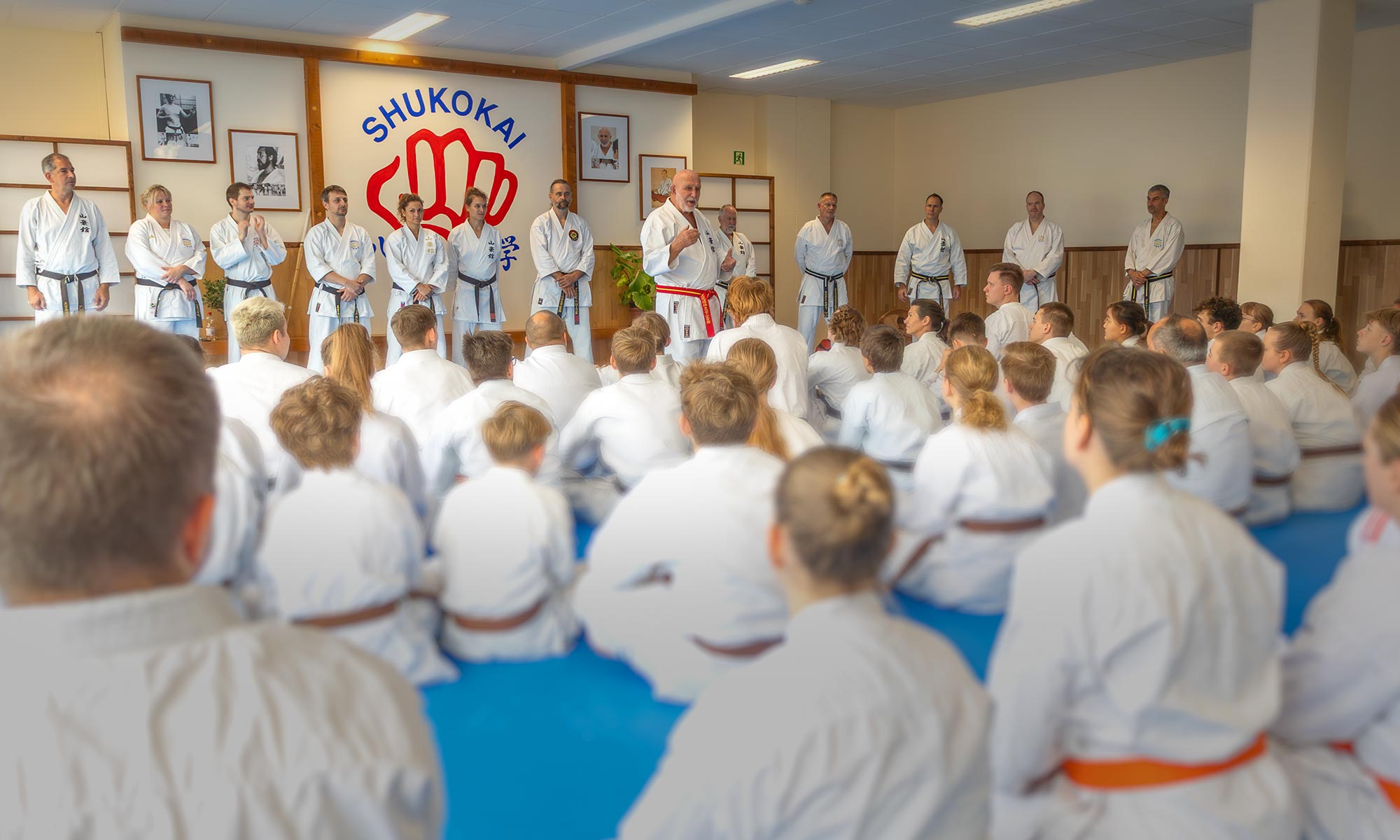The majority of students and teachers can easily identify the physical aspects that are required. The ability to fight, the basic stances and movements that have been practised over and over, and of course the kata. That strange combination of movements we learn for our grading that Sensei will not let us alter in any way. All these things are vitally important. A Black Belt without finely tuned physical skills is not a Black Belt at all. The traditions and skills inherent in that ryu, or school, are the foundation that the Martial Artist requires to progress further. It is on this foundation that the individual’s potential is developed.
There are other aspects, other skills, other attitudes that the Martial Artist must consider before real progress through the ranks of the Yudanshakai may be accomplished. He or she must first realise that they really know very little about their chosen art compared to their Sensei and Sempai (those students senior to them in rank and experience), who have a much respected knowledge when compared with their kohei (juniors). Every student is in a position relative to their experience. You may be a master to some and a student to another. A Black Belt must understand that others on the same path may be ahead or behind, but they are on the same path nevertheless.
Kanchō Paul Mitchell, 9th Dan Hanshi (April 2003)
Initially, many students are motivated by the desire to learn self-defense. However, as they progress, their motivations often evolve. Achieving a Black Belt fulfills the basic need for self-defense, but many continue training for personal growth, mastery, and the deeper mental and spiritual benefits that Karate offers.
The time required to reach a Black Belt varies significantly depending on the individual’s natural ability, dedication, and the specific requirements of their school or association. On average, it can take anywhere from three to ten years. Only about one in two hundred students reach this level, as it demands consistent effort and overcoming various personal and external challenges.
A Black Belt represents a high level of physical skill, endurance, and mental discipline. It is a sign of significant achievement, but it also indicates the beginning of a deeper journey in martial arts. Beyond physical prowess, it symbolizes a commitment to ongoing personal development and understanding of the art. The Black Belt encompasses a range of skill levels and attitudes, reflecting both the physical and philosophical aspects of Karate.
After reaching Shodan (first-degree Black Belt), students continue to refine their skills and understanding. Each subsequent rank requires mastering new techniques and deepening one’s knowledge. The progression involves achieving a balance between basics, kata (forms), and kumite (sparring). This balance is crucial for real development and ultimately leads to a profound understanding of oneself and the martial art.
The status of being a Black Belt is ideally tied to active training and continuous self-improvement. While someone who no longer trains may retain their knowledge and have contributed significantly to their martial arts community, the essence of being a Black Belt involves ongoing practice and personal development. Those who continue to train uphold the full spirit and responsibility of the Black Belt.
You can find the qualified instructors for your training in our dojos or contact us directly.

